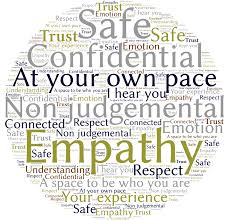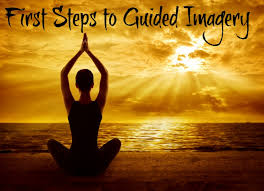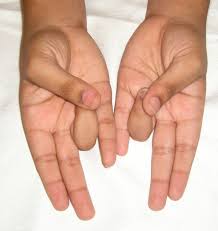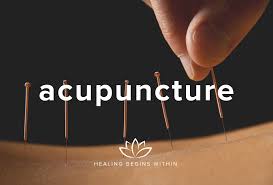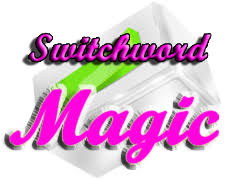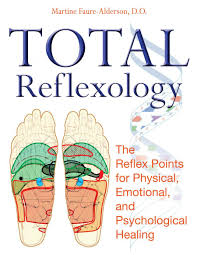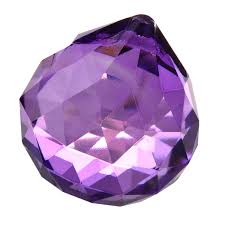Skills required for being the Best Counselor and Therapist
Skills required for being the Best Counselor and Therapist are many and need to be inculcated carefully. Counselors and psychotherapists play a crucial role in improving the health and wellbeing of our society. They help people to talk about their feelings, think about their choices or their behaviour, and make positive changes in their lives. Thus one needs to understand the skills required for being the Best Counselor and Therapist and see that they acquire them. The Top Alternate Medicine Centres in Chennai are run by people having the Skills required for being the Best Counselor and Therapist. Counselling and therapy is one of the Best Alternate Healing Method to treat Depression, thus the counselors must possess the Skills required for being the Best Counselor and Therapist.
Skills required for being the Best Counselor and Therapist are:
1) Attending is a Skill required for being the Best Counselor and Therapist. It refers to the ways in which counselors can be “with” their clients, both physically and psychologically. Effective attending tells clients that you are with them and that they can share their world with you. Effective attending also puts you in a position to listen carefully to what your clients are saying. Effective attending puts counselors in a position to listen carefully to what their clients are saying or not saying.
2) Squarely face your client is a Skill required for being the Best Counselor and Therapist. Adopt a bodily posture that indicates involvement with your client. (A more angled position may be preferable for some clients – as long as you pay attention to the client.) A desk between you and your client may, for instance, create a psychological barrier between you.
3)Open posture is a Skill required for being the Best Counselor and Therapist. Ask yourself to what degree your posture communicates openness and availability to the client. Crossed legs and crossed arms may be interpreted as diminished involvement with the client or even unavailability or remoteness, while an open posture can be a sign that you are open to the client and to what he or she has to say.
4) Lean toward the client is a Skill required for being the Best Counselor and Therapist. It is used (when appropriate) to show your involvement and interest. To lean back from your client may convey the opposite message.
5) Eye contact is a Skill required for being the Best Counselor and Therapist. Eye Contact with a client conveys the message that you are interested in what the client has to say. If you catch yourself looking away frequently, ask yourself why you are reluctant to get involved with this person or why you feel so uncomfortable in his or her presence. Be aware of the fact that direct eye contact is not regarded as acceptable in all cultures.
6) Try to be relaxed or natural with the client is a Skill required for being the Best Counselor and Therapist. Do not fidget nervously or engage in distracting facial expressions. The client may begin to wonder what it is in himself or herself that makes you so nervous! Being relaxed means that you are comfortable with using your body as a vehicle of personal contact and expression and for putting the client at ease.
7) Listening is a Skill required for being the Best Counselor and Therapist. It refers to the ability of counselors to capture and understand the messages clients communicate as they tell their stories, whether those messages are transmitted verbally or nonverbally.
Active listening involves the following four skills:
- Listening to and understanding the client’s verbal messages. When a client tells you his or her story, it usually comprises a mixture of experiences (what happened to him or her), behaviors (what the client did or failed to do), and affect (the feelings or emotions associated with the experiences and behaviour). The counselor has to listen to the mix of experiences, behaviour and feelings the client uses to describe his or her problem situation. Also “hear” what the client is not saying.
- Listening to and interpreting the client’s nonverbal messages. Counselors should learn how to listen to and read nonverbal messages such as bodily behaviour (posture, body movement and gestures), facial expressions (smiles, frowns, raised eyebrows, twisted lips), voice related behaviour (tone, pitch, voice level, intensity, inflection, spacing of words, emphases, pauses, silences and fluency), observable physiological responses (quickened breathing, a temporary rash, blushing, paleness, pupil dilation), general appearance (grooming and dress), and physical appearance (fitness, height, weight, complexion). Counselors need to learn how to “read” these messages without distorting or over interpreting them.
- Listening to and understanding the client in context. The counselor should listen to the whole person in the context of his or her social settings.
- Listening with empathy. Empathic listening involves attending, observing and listening (“being with”) in such a way that the counselor develops an understanding of the client and his or her world. The counselor should put his or her own concerns aside to be fully “with” their clients.
Active listening is unfortunately not an easy skill to acquire. Counselors should be aware of the following hindrances to effective listening.
- Inadequate listening: It is easy to be distracted from what other people are saying if one allows oneself to get lost in one’s own thoughts or if one begins to think what one intends to say in reply. Counselors are also often distracted because they have problems of their own, feel ill, or because they become distracted by social and cultural differences between themselves and their clients. All these factors make it difficult to listen to and understand their clients.
- Evaluative listening: Most people listen evaluatively to others. This means that they are judging and labeling what the other person is saying as either right/wrong, good/bad, acceptable/unacceptable, relevant/irrelevant etc. They then tend to respond evaluatively as well.
- Filtered listening: We tend to listen to ourselves, other people and the world around us through biased (often prejudiced) filters. Filtered listening distorts our understanding of our clients.
- Labels as filters: Diagnostic labels can prevent you from really listening to your client. If you see a client as “that women with Aids”, your ability to listen empathetically to her problems will be severely distorted and diminished.
- Fact centered rather than person centered listening: Asking only informational or factual questions won’t solve the client’s problems. Listen to the client’s whole context and focus on themes and core messages.
-
- Rehearsing: If you mentally rehearse your answers, you are also not listening attentively. Counselors who listen carefully to the themes and core messages in a client’s story always know how to respond. The response may not be a fluent, eloquent or “practised” one, but it will at least be sincere and appropriate.
- Sympathetic listening: Although sympathy has its place in human transactions, the “use” of sympathy is limited in the helping relationship because it can distort the counselor’s listening to the client’s story. To sympathise with someone is to become that person’s “accomplice”. Sympathy conveys pity and even complicity, and pity for the client can diminish the extent to which you can help the client.
- 8) Empathy is a Skill required for being the Best Counselor and Therapist. It is your ability to understand and identify with another person’s experiences, even if they do not describe their thoughts or feelings explicitly to you. A good therapist can empathize with a wide variety of people, understanding their choices and feelings even if, as a therapist, you do not agree with them. You will need to be emotionally attuned to individuals’ needs, and will also have to be able to help them identify and articulate their feelings. An angry person, for example, might be struggling with feelings of inadequacy that fuel anger. A highly empathetic therapist will be better equipped to detect this.
9) The ability to develop a non-judgmental approach is a Skill required for being the Best Counselor and Therapist.
A counselor’s job is not to pass judgment or give advice on a client’s actions or feelings; instead through talking therapy they aim to help clients see things clearly, from a different, more optimistic viewpoint. To do this client’s need to feel free to express their thoughts and feelings without judgment, criticism or rejection. As a counselor you need to contain and manage your own reactions in a supportive and professional manner.
10) Confidentiality is a Skill required for being the Best Counselor and Therapist.
Confidentiality issues need to be strictly observed. Only in exceptional circumstances should anything that is discussed in client sessions be passed on to third parties other than the counselor’s clinical supervisor.
11) Resilience, patience and humility are Skills required for being the Best Counselor and Therapist. The work of a counselor can be very intense and demanding. One needs to develop sufficient emotional robustness and a high degree of self-reflexivity. One also needs a capacity for self-care and a willingness to recognise one’s own limitations.
12) A genuine interest in others is a Skill required for being the Best Counselor and Therapist. Not technically a skill, but essential none the less. For a lasting and gratifying career one will need to remain curious and committed to improving the emotional wellbeing of their clients. Being able to demonstrate real interest in clients’ individual situations will promote a positive and trusting client-counselor relationship.
13) A strong network of colleagues is a Skill required for being the Best Counselor and Therapist. Sometimes you will need to refer people to other therapists or to a psychiatrist and having a strong network of colleagues with whom you communicate can help you give those individuals the best referrals possible. People are also more likely to create a positive therapeutic relationship with a therapist who is a good communicator, as this can convey confidence and assertiveness.
14) Boundary setting is a Skill required for being the Best Counselor and Therapist. In order to provide ethical therapy, counselors and therapists must be able to establish and maintain healthy boundaries with the people they help in treatment. One aspect of protecting the welfare of the people you work with in therapy is to avoid dual relationships, particularly relationships that are romantic or sexual in nature. It is not ethical for you to participate in romantic relationships with the people you treat in therapy.
You must be able to clearly communicate to clients the nature and limits of the therapeutic relationship. This usually starts during your initial consultation with them, when they fill out your disclosure forms.
People are not born knowing how to set healthy boundaries; it is something that you learn throughout your lifetime. You must be conscientious of the boundaries you set as a therapist, even if you may have struggled with setting boundaries in your personal life or have codependent tendencies.
15) Critical thinking is a Skill required for being the Best Counselor and Therapist. You will need strong critical thinking skills when making diagnoses and developing treatment plans. The first treatment approach does not always work, so you will need to have back-up plans and the ability to question what is working and what is not. Alongside these critical thinking skills, you will need a scientific mind. You will have to keep up to date on research trends, know enough about medication to be able to talk to people about any medications they are taking, and remain mindful of alternative treatments such as exercise, herbal therapies, or nutritional changes. Like Alternate Healing methods for Depression and Herbal Therapies for gastritis. A therapist who can help people try several different proven strategies is much more likely to be effective.
Therapists also need to be able to detect what is under the surface and respectfully question people. Without good critical thinking skills, you could miss out on an important behavioral explanation. Someone who insists that his or her spouse is intolerable might, for example, be verbally abusing that partner. A therapist who cannot ask tough questions and search for what is below the surface might make the wrong recommendations or guide people toward unwise decisions.
16) Problem-Solving is a Skill required for being the Best Counselor and Therapist. It’s not up to a counselor to solve her clients’ problems, no matter how much she might want to help. But counselors must have excellent problem-solving skills to be able to help their clients identify and make changes to negative thought patterns and other harmful behaviors that might be contributing to their issues.
17) Rapport-Building is a Skill required for being the Best Counselor and Therapist.
Counselors must possess a strong set of interpersonal skills to help establish rapport quickly with clients and develop strong relationships. They must give their undivided attention to clients and be able to cultivate trust. Counselors need to be able to place all of their focus on what their clients are saying and avoid being distracted by their own personal problems or concerns when they are in a session.
18) Flexibility is a Skill required for being the Best Counselor and Therapist. Flexibility in counseling is defined as the ability to adapt and change the way you respond to meet your clients’ needs. You don’t stay rigid and stick to a predetermined treatment path when your clients require a different approach. Being flexible is one of the most important attributes of a professional counselor.
19) Self-Awareness is a Skill required for being the Best Counselor and Therapist. Self-awareness is the ability to look within and identify your own unmet psychological needs and desires, such as a need for intimacy or the desire to be professionally competent. This ability prevents your issues from affecting or conflicting with those of your clients. Self-awareness has a major impact on a counselor’s effectiveness.
20) Multicultural Competency is a Skill required for being the Best Counselor and Therapist. Counselors help people from all walks of life. They must display multicultural competency and adopt a multicultural worldview. Multicultural competency means that you try to relate to and understand your clients regardless of their race, ethnicity, religious or political beliefs or socioeconomic background.
21) Sense of Humor is a Skill required for being the Best Counselor and Therapist. Counselors sit through some uncomfortable, difficult, and often traumatic stories. That said, it’s alright for both counselors and clients to laugh along the way.
Timing is, of course, everything when it comes to this type of thing, but knowing how to form a relational connection with someone to the point of developing a shared sense of humor is a skill that shouldn’t be overlooked.
Humor and a nuanced understanding of its uses in the therapeutic environment is a valuable tool.
22) Learn Continuously is a Skill required for being the Best Counselor and Therapist.
Counselors that do not have a commitment to professional development will find it increasingly difficult to practice and this lack of commitment often will affect their level of service. Professional Development options include workshops, conferences, courses, articles and many other learning pathways including online learning and group supervision. These can be also found at Alternate Medicine Courses in Chennai.
23) Get a Supervisor: There are different theories and models in supervision. There are also different types of supervision (e.g. structured/unstructured, individual/group), each with a range of delivery methods (e.g. live, self-report, audio tape, etc).
24) Care for Yourself is a Skill required for being the Best Counselor and Therapist. Counselling-orientated problems, with other factors previously mentioned, have the potential to place counselors at a high risk of burnout. Understanding how stress and burnout can affect individuals is the starting point to developing strategies that promote self-care and reduce the incidence of burnout. The quest to find balance in life/work situations can be as important as the quest for knowledge.
25) Increase Your Professional Effectiveness is a Skill required for being the Best Counselor and Therapist. Effectiveness strategies can assist counselors to become more organized and efficient in their daily tasks. Ultimately, the application of effectiveness strategies will assist a counselor to improve in a range of personal and professional areas. Effectiveness strategies can include time management skills, emotional resilience, goal-setting, planning, and many other areas.
26) Counselor Self-Disclosure is a Skill required for being the Best Counselor and Therapist. This is a tricky counseling skill to maneuver. A general rule to follow is to only share personal information that is beneficial to the therapeutic process. It might also be used to help the counselor relate better with their client.
I have given an exhaustive list of Skills required for being the Best Counselor and Psychotherapist and I follow all of them. In case there is any other skill that you know of then do let me know so that I can add to my Skills required for being the Best Counselor and Psychotherapist.

